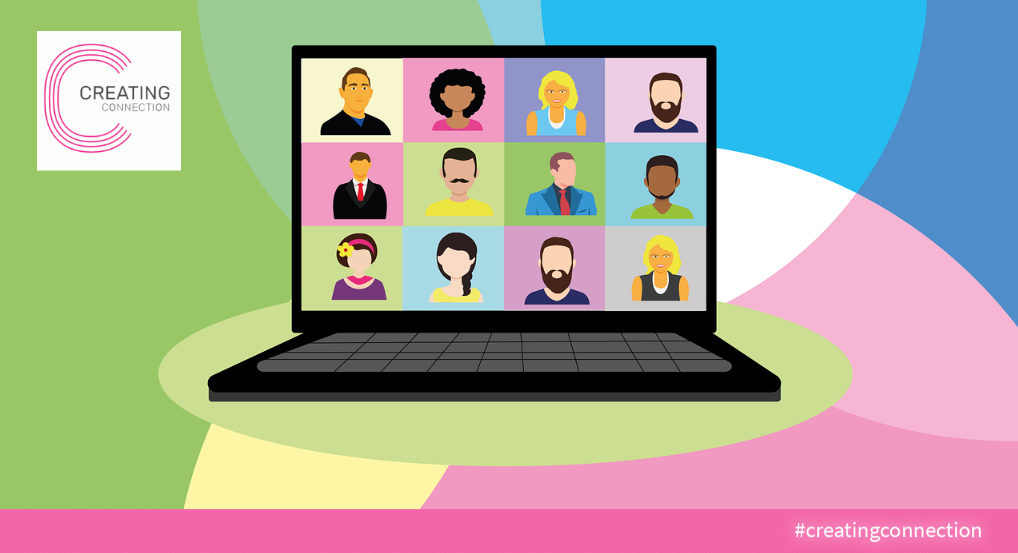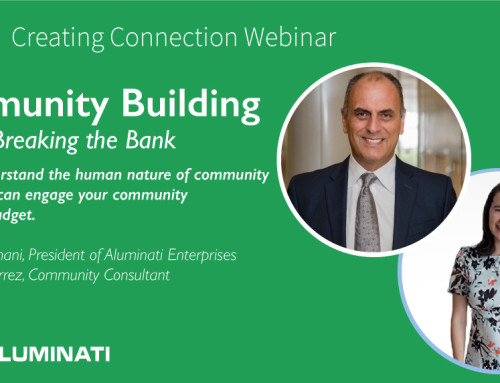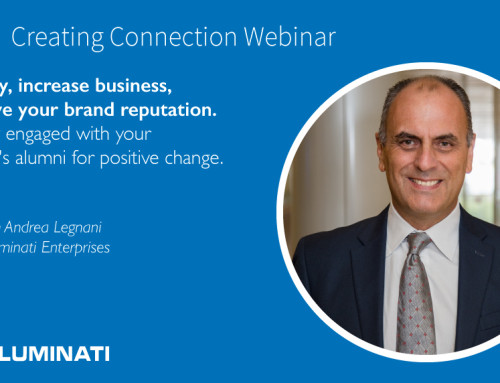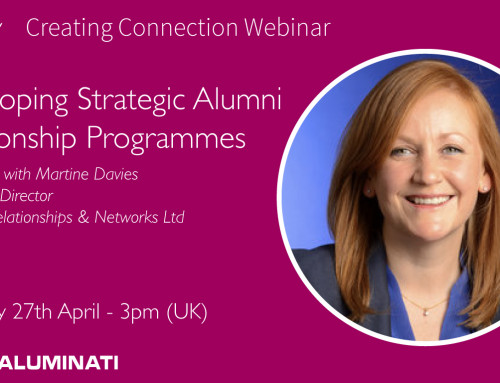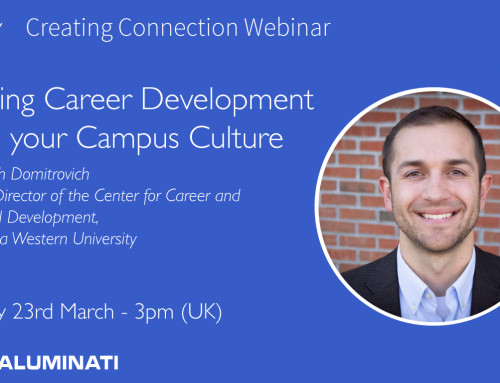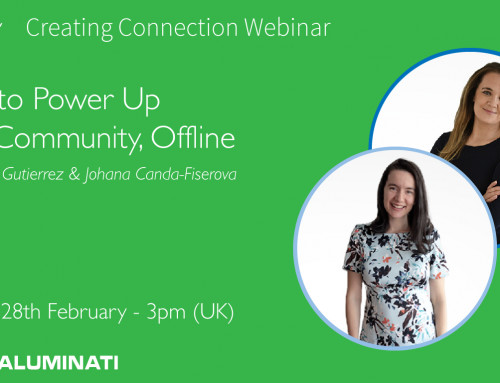This Virtual Roundtable was held on the 30/Apr/2020. A number of university engagement professionals gathered to discuss the challenges, opportunities and responses to the pandemic situation. Below we present the highlights and takeaways.
Creating Connection events are for members of the Community Builders network. If your work involves building community, managing networks or strengthening affinity, it is free for you to join.
Sign up for your Community Builder’s membership.
Setting the scene
Articles highlighting concerns of loss of students expected to arrive this year, international students in particular.
“The new analysis suggests that over 230,000 fewer students will enter higher education in 2020 as a result of the crisis, over half of which are international students. That fall in student numbers would translate into a drop in income of around £1.51bn from non-EU students, £350 million from EU students and £612 million from UK students opting to stay away.”
“…the autumn is expected to bring fresh difficulties, with between 20% and 80% of international students, whose fees the sector relies on (about £3bn in England), expected to stay away.”
Aluminati’s Crisis Responses
Aluminati themselves have created two initiatives to tailor the platform to specific needs of clients at this time:
Admissions Retentions Platform: https://www.aluminati.net/offer-holder-solution/
SPOTLIGHT : University of Bath’s Alumni Ambassadors programme
Chris Tickell, International Alumni Events Manager, University of Bath
The programme started in 2018, so they have had a 2-year cycle and it has been a huge success. It has over 400 ambassadors in 46 countries (particularly in international cities where there are no events or on-site activities arranged by the marketing team), and over 1000 offer holders use the system. Offer holders are international students and come from 85 countries (but mainly from China, Taiwan, Japan, and India).
They have only sent one email to offer holders and had a very good take-up.
Data has concluded that offer holders that participate in the programme are 2.2 times more likely to convert into students of Bath. So far the programme has been focused on PGT (postgraduate) students.
This year they are focusing on social media and a bigger campaign and trying to move to undergraduates as well as UK based postgrads.
Engagement goes beyond conversations between ambassadors and offer holders. Offer holders tend to scroll through and spend time looking at the ambassadors’ profiles, which showcase where a degree from Bath can take you after graduation, and that was very positive for them. Engagement in terms of number of messages was lower than expected.
It has taken the current crisis to make the recruitment team see the value of these conversations, activity and interactions.
They found that:
- There is a huge opportunity to engage
- That engagement is not always about the conversations
- Offer holders like browsing and seeing what the degree can get them
- Slight surprise about the positive effect of passive engagement (viewing profiles) – it wasn’t just about the relationships/conversations.
Questions about Bath’s initiative
What does the programme look like?
On the platform there are different types of interactions: student to alumni as mentees and mentors, alumni to alumni and the ambassador-offer holder relationships. Applicants get a unique link to join the platform integrated into our applicant site (through a Single-Sign-On integration), and once we get confirmation of registered students, we deactivate the access links to the platform for those that did not come to Bath.
No one on the platform can see the offer holder, not even between offer holders. The offer holder profile becomes visible when they contact an ambassador and the ambassador accepts the request. But their profile is only visible to that ambassador and no one else.
This programme is run in the current version of the platform, known as Version 6, but it will be possible to run it on the new version coming in the summer, (Aluminate Community Builder), in a more flexible way.
What about vetoing ambassadors to participate? / Safeguarding considerations
At the beginning, ambassadors would need to apply and be accepted, but now, staff in charge just keep an eye on data and interactions. Bath has never had a problem with an ambassador, as people that volunteer to do this are great advocates of the university.
A consultant contributes her experience from working at a leading UK University:
Sign clear terms and conditions when signing up to be an ambassador on the platform, accepted by the applicant, is a good way of mitigating any risks.
Would it be possible to be stricter with ambassadors?
Yes, you can use the account type of a user on the platform to filter who is able to join as ambassador.
Potentially run application forms for ambassadors and require approval before they are able to become one – This was pending the need of each institution and the platform’s capacity to customise this.
The platform allows you to create set questions for offer holders, and direct their conversations at ambassadors (avoiding common questions that should go to the admissions team to go to the ambassadors, for example about immigration requirements, thus saving admin time).
Are the same people mentors and ambassadors?
They target specifically alumni 0-5 years out to be ambassadors, that are yet not mentors themselves, but any alumni is welcome to be an ambassador and can join by turning on their ambassadors feature on the platform.
What was the process to set up the project?
Fairly easy to set-up, but with staff turnover priority has shifted down. With the current crisis, it is back up as an essential project.
What are the day-to-day resources required to manage an ambassadors programme?
For the Alumni team this varies week to week – it can be an hour daily during peak times (like now, when this is increasingly needed due to the Covid-19 crisis and we need to generate engagement opportunities with both alumni and offer holders). There are also meetings with the Communications teams to plan campaigns.
The Recruitment team handles most of the offer holder activity. Alumni team share the data from the platform for them to take actions and analyze.
The relationship with Admissions is positive.
Also in progress at Bath. They are looking to:
- Have profiles on their webpage talking about how useful it was
- Push current programme reaching out to offer holders
- Continue getting quotes and qualitative/quantitative data
Open Roundtable Discussion
Experience with recruitment for an International School
- Challenge is being an international school and competing against a strong local market
- Having to market the value of an international education
- Are a relatively new school, so have their own challenges
Scaling up the Ambassadors project?
Bath wants to extend the programme access to offer holders to PGT UK based and undergraduate offer holders globally. Here, safeguarding minors under 18 years old is something they are discussing at the moment.
They have had lots of approaches from alumni all over the world – considering how to manage this?
How to measure impact and conversion rate for offer holders within the ambassadors’ programme?
- Have informal ambassadors that go to events and speak to students
- Calculating the conversion rate for all offer holders vs. the conversion rate for offer holders that were part of the ambassadors’ platform.
- Include offer holders that use the platform that do not have access to any other engagement activity in their cities, and use the online solution as a way of connecting.
- Opens geographies the Admissions team cannot get too easily, giving more engagement opportunities that are measurable. Adds value to the offer holder experience.
- The first cohort of offer holders that participated in the programme graduated in January and will be asked to share their experiences.
Experience with paid student ambassadors converting into alumni volunteers (unpaid)
- Response from an Alumni Relations Manager: Currently we have 400 ambassadors of which half were paid student ambassadors. We only covered their travel expenses. They are happy to come back as volunteers, and I was only questioned once about payment.
Shifting priorities in universities due to Covid-19
COVID-19 has put alumni at the forefront of priorities around the university, particularly for the international office and the recruitment office. Even though alumni have always been aligned with main strategic goals for the university, the use of alumni to achieve targets is more important than ever.
Close
Reminder that Aluminati themselves have created two initiatives to tailor the platform to specific needs of clients at this time:
Admissions Retentions Platform: https://www.aluminati.net/offer-holder-solution/
COVID19 Client Support Pack: https://www.aluminati.net/covid19-support/
Next sessions:
Roundtables are exclusively for members. Feel free to register for the events below and then sign up to Community Builders Network in order to receive information for future events.
Wednesday 13 May, 4-5pm UK time.
Topic: Responding to a world in crisis – leveraging your community in hard times.
Wednesday 27 May, 3-4pm UK Time.
Topic: Managing International Alumni Communities.
Aluminati have created two initiatives to support the short term emergency response requirements of the education sector:
Student Admissions Retentions Platform: https://www.aluminati.net/offer-holder-solution/

Join the Community Builders Network
- Become part of a professional and supportive network of peers.
- Receive invites to exclusive Creating Connection events including round tables, webinars, regional dinners and drinks.
- Receive copies of The Alumination – a newsletter full of community sector insights.
- Be invited to the Community Builders Conference.

